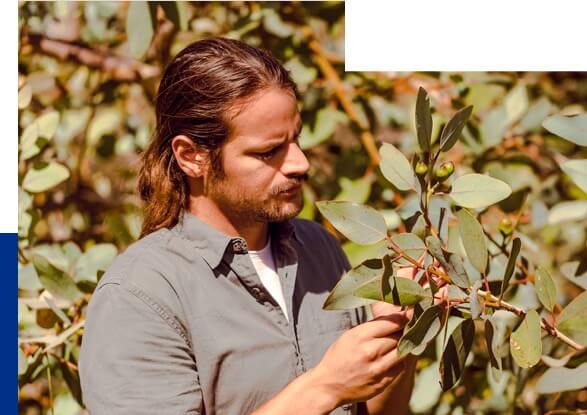UWA PLUS
Graduate Certificate in Science (Environmental Science specialisation)
(Not available in 2021)
The fully online Graduate Certificate in Science (Environmental Science specialisation) will develop your skills and knowledge to assess the impact of human activity and develop scientific, risk-based solutions to help secure a sustainable global environment.
You will be taught by leading academics in the field and have the opportunity to develop strong industry and professional links to increase your career opportunities upon completion. This certificate can also be used as credit into our Master of Environmental Science, which provides the opportunity to further develop your skills to become a leader in the field. The master’s degree also provides an opportunity for you to undertake a research project.
To apply for the Environmental Science specialisation, select 74250 Graduate Certificate in Science in our application portal.
- Start date
24 July- Study mode
- Online
- Cost
$5,000Discounted to $2,500 until 24 July- Course code
- 74250

What you'll learn
Advanced skills and knowledge in the monitoring and assessment of environmental systems using field, laboratory, modelling and statistical methods and techniques.
How to apply knowledge and skills with creativity and initiative to new situations in professional practice and/or for further learning within environmental science.
Advanced communication, problem solving and technical research skills.

Why study this course?
- Get a semester head start towards the Master of Environmental Science.
- Take a step towards a job in a field you’re passionate about.
- Utilise UWA's strong links with industry and professional networks to increase your career opportunities.
What's next after this course?
- Future study
- This graduate certificate can serve as an entry pathway to a master’s degree. Units completed in the graduate certificate can be credited towards the Master of Environmental Science.
- Career outcomes
- Research associate
- Environmental consultant
- Environmental manager
Course Structure
- Environmental Economics Specialisation
-
Environmental Economics will provide students with a detailed understanding of how economic approaches to solving problems can be used to address the challenges associated with human impacts on the environment. The focus of the course is applications of the economic way of solving problems related to climate change, biodiversity loss, agricultural land degradation, marine pollution, water shortages, over-fishing, poverty due to natural resource loss, and air pollution. Environmental economics uses many of the standard tools of microeconomics and econometrics, and as such, the course will prepare students for a future career in both the field of environmental economics or microeconomics more generally.
Units
- Environmental Management Specialisation
-
Focuses on devising effective policy options and strategies for natural resource use, and for the protection and conservation of the environment, natural and cultural heritage. Students learn about the complexity of social-environmental systems, climate policy and Sustainable Development Goals.
Units
- Marine and Coastal Specialisation
-
The coastal margin is a focus area of development which must be carefully managed to ensure long-term sustainability of human communities and natural ecosystems. The Marine and Coastal specialisation provides students with knowledge and practical skills for the management of marine and coastal environments by covering interdisciplinary content spanning physical and biological sciences, through to policy and regulatory frameworks. Students learn the threats and hazards facing coastal systems, and the principles of conservation and management of nearshore resources, including marine protected areas. Focus is given to learning adaptation measures for coastal protection and sustainable aquaculture.
Units
- Environmental Rehabilitation Specialisation
-
Environmental degradation poses a major challenge to the sustainability of life on Earth. Environmental rehabilitation addresses this by halting and reversing degradation. This specialisation will equip graduates with a fundamental understanding of abiotic and biotic processes operating in environmental systems, how these are disturbed by anthropogenic and non-anthropogenic causes, and how to develop effective interventions and management plans to improve and restore environmental quality and ecological function.
Units
- Sensing and Spatial Data Science
-
The emergence of big data is creating new challenges and opportunities for environmental professionals. New eyes on the world through advanced sensor technology, including drones and satellite remote sensing, increasingly requires advanced Geographic Information Science (GIS) and data analytics skills. Students experience the acquisition, visualisation and analysis of diverse geospatial and sensor network data to improve management of environments affected by socioeconomic activity
Units

